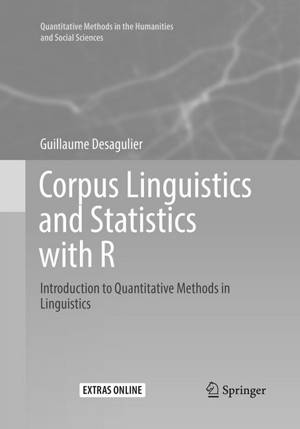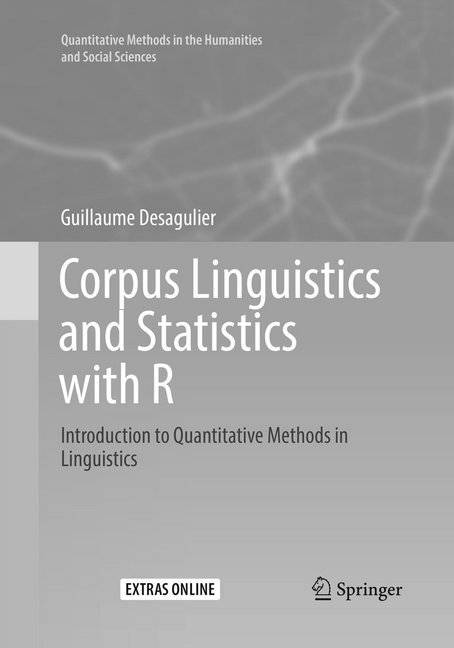
- Retrait gratuit dans votre magasin Club
- 7.000.000 titres dans notre catalogue
- Payer en toute sécurité
- Toujours un magasin près de chez vous
- Retrait gratuit dans votre magasin Club
- 7.000.0000 titres dans notre catalogue
- Payer en toute sécurité
- Toujours un magasin près de chez vous
Corpus Linguistics and Statistics with R
Introduction to Quantitative Methods in Linguistics
Guillaume Desagulier
105,45 €
+ 210 points
Format
Description
Accessible introduction to quantitative methods for linguistics with emphasis on learning the methods and then applying them with R
Includes downloadable supplementary materials for readers
Suitable for advanced undergraduate courses, graduate courses, and self-study
Spécifications
Parties prenantes
- Auteur(s) :
- Editeur:
Contenu
- Nombre de pages :
- 353
- Langue:
- Anglais
- Collection :
Caractéristiques
- EAN:
- 9783319878232
- Date de parution :
- 27-05-18
- Format:
- Livre broché
- Format numérique:
- Trade paperback (VS)
- Dimensions :
- 178 mm x 254 mm
- Poids :
- 635 g

Les avis
Nous publions uniquement les avis qui respectent les conditions requises. Consultez nos conditions pour les avis.






